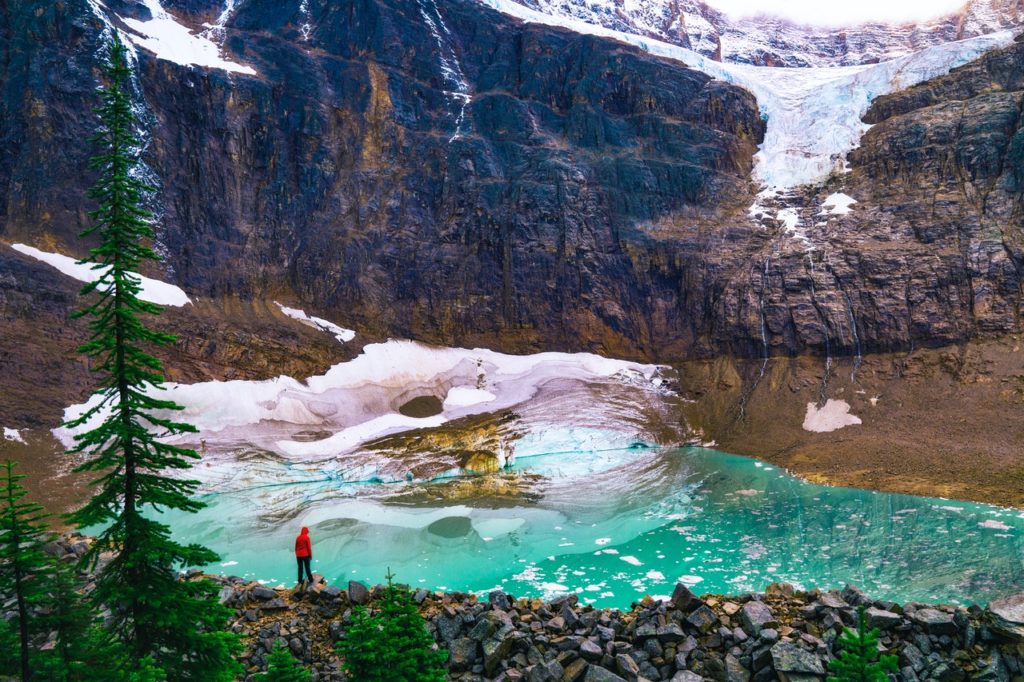Social media advertising can be an excellent, cost effective way for outdoor/adventure companies to engage directly with their target audience. Increasingly, companies are using social media contests as part of their marketing efforts, either in conjunction with or in place of more traditional advertising efforts.
Though a promotion on social media may feel more “informal” in nature, contests through such platforms are still governed by legislation and rules that must be followed.
Game of Skill vs. Game of Chance?
You’ve likely seen posts like this on social media platforms: “Like this post, tag two friends and share on your feed to win!” Run properly, social media promotions can increase your company’s brand awareness and help you to advertise and market your products – organically, virally or through influencers.
But did you know that, if such contests are run improperly, you may face regulatory penalties under the Competition Act or even criminal charges under the Criminal Code for running an illegal lottery?
Platform-Specific Regulations
In addition to the requirements of the Competition Act and the Criminal Code, outdoor/adventure businesses using promotional contests on social media should be aware of the particular rules and restrictions of the different social media platforms.
Facebook does not allow businesses to administer promotional contests through personal Timelines or connections between friends. Promotions that use such language as “share on your Timeline to enter,” “share on your friend’s Timeline to get additional entries,” or “tag your friends in this post to enter” are expressly prohibited.
To comply with Facebook’s rules, a promoter must use Facebook Pages, Groups, Events or other Facebook apps to run its promotional contest. For example, an outdoor/adventure company can create an event on Facebook for a photo contest, asking users to submit their best outdoor winter activity shot. Businesses can use their Page Timelines to administer a contest and can collect entries by asking users to post on the Page, message the Page or comment on/like the Page’s post.
Any promotion on Facebook must include a complete release of Facebook by each entrant/participant, and must acknowledge that the contest is in no way sponsored, endorsed, administered by or associated with Facebook.
“Best photo” or “creative caption” contests can be an effective way of gaining followers and increasing engagement on Instagram. Similar to Facebook, Instagram requires a complete release of Instagram by each entrant/participant, and an acknowledgment that the contest is in no way sponsored, endorsed, administered by or associated with Instagram.
Further, Instagram does not allow users to inaccurately tag content or encourage others to do so (for example, suggesting people tag themselves in a photo if they are not in the photo).
Twitter can also be a great platform for an outdoor/adventure company to promote its wares or engage with its customers or potential customers.
However, a company looking to use Twitter to administer contests should be aware that posting duplicate tweets violates Twitter’s rules, so contests such as “whoever re-tweets this the most wins” should be avoided, and companies should not ask their contest participants to tweet the same post more than once per day.
Twitter also prohibits the creation of multiple accounts in order to enter a contest more than once and encourages promoters to expressly state in the contest rules that those found using multiple accounts will be ineligible (and is likely to get all of the involved accounts suspended by Twitter).
To make sure you see all of the replies to your contest, Twitter recommends you encourage people to mention your Twitter handle in their responses. Lastly, make sure to use a relevant hashtag such as #yourcompanyname or #nameofcontest, and do not encourage participants to add that hashtag to tweets that are unrelated to the contest.
Legal Considerations
Regardless of which social media platform your outdoor/adventure company uses for a promotional contest, it is important to keep the following considerations in mind:
- Provide adequate disclosure through your contest’s short rules
The short rules are included on the social media page itself – generally followed by a link to the long rules which contain the full contest rules – and are usually a short paragraph satisfying the mandatory requirements under s. 74.06 of the Competition Act.
The short rules must include:
- the number and approximate value of prizes;
- the regional allocation of prizes;
- details regarding the chances of winning;
- a skill testing question requirement if it is a contest of chance;
- the contest closing date; and
- any other fact known to the promoter that materially affects the chances of winning.
- Winner release
For an outdoor/adventure company where the contest prize may involve risk – such as a trip contest where there is a risk of travel accidents or injury – it is important to require winners to sign a release as a condition of winning the prize. The winner release can serve to indemnify and release the contest sponsor should anything unfortunate occur.
- No purchase required entry
The Criminal Code prohibits illegal lotteries, where prizes are awarded based on games of chance or mixed chance and skill, and where an entrant provides valuable consideration (e.g. money) in exchange for entry into the contest. To avoid falling under the Code as an illegal lottery, outdoor/adventure companies running a social media contest should include a “no purchase necessary” mechanism in the rules.
- Intellectual Property
For an outdoor/adventure company, photo contests can be a way to showcase your brand on more than just your own channels. If, however, a contest requires entrants to submit original photos (i.e. showcasing your product), be sure to include language in the rules that gives your company the right to use the photos, as well as indemnification provisions for situations where an entrant submits a photo to which he or she does not own the rights.
- Compliance with Canadian privacy laws and Canada’s Anti-Spam Legislation
To satisfy Canadian privacy laws, include details in the short rules about what information will be collected from the applicant and how the information will be used.
The company’s own privacy policy should also be readily available, including information on how personal information is collected, used and protected.
Finally, because Canada’s Anti-Spam Legislation (CASL) is very strict, companies wishing to use email or other electronic communication in their promotional contests should consider their obligations for CASL compliance before doing so.
Ryan Morasiewicz [hyperlink to firm bio] would be happy to speak with you about your proposed social media contest.
Note: This article is of a general nature only and is not exhaustive of all possible legal rights or remedies. In addition, laws may change over time and should be interpreted only in the context of particular circumstances such that these materials are not intended to be relied upon or taken as legal advice or opinion. Readers should consult a legal professional for specific advice in any particular situation.





